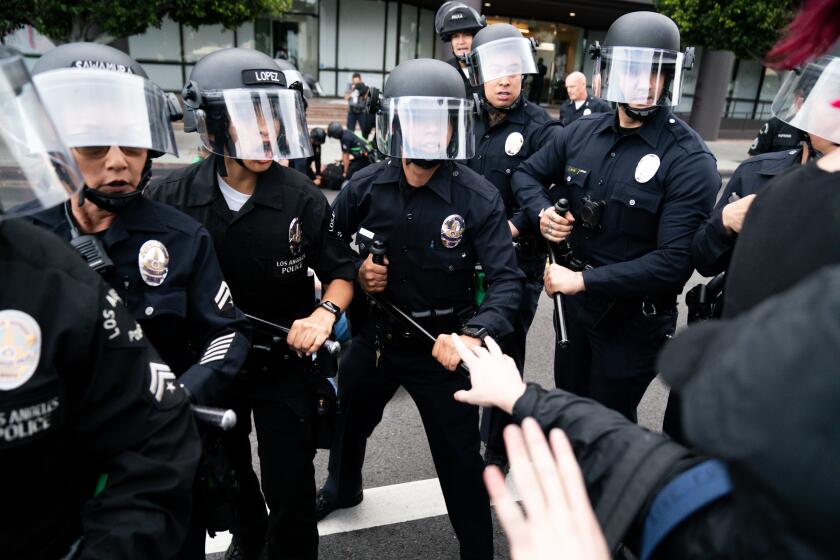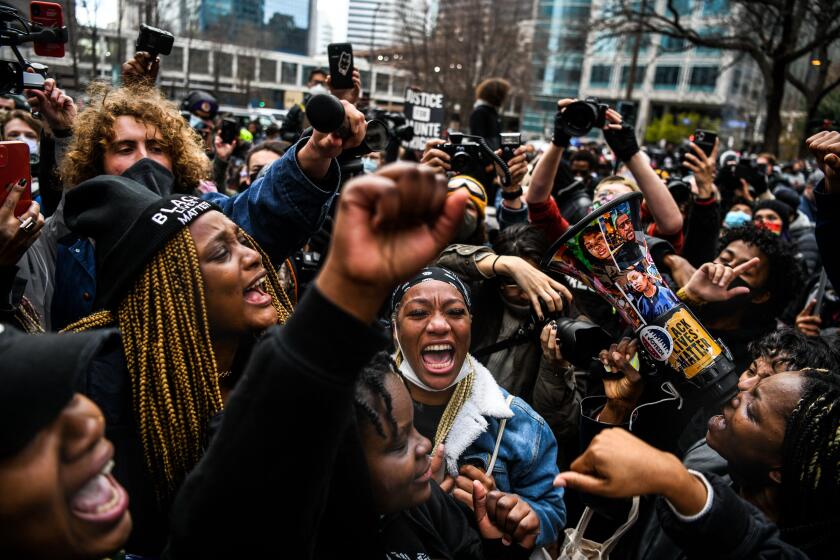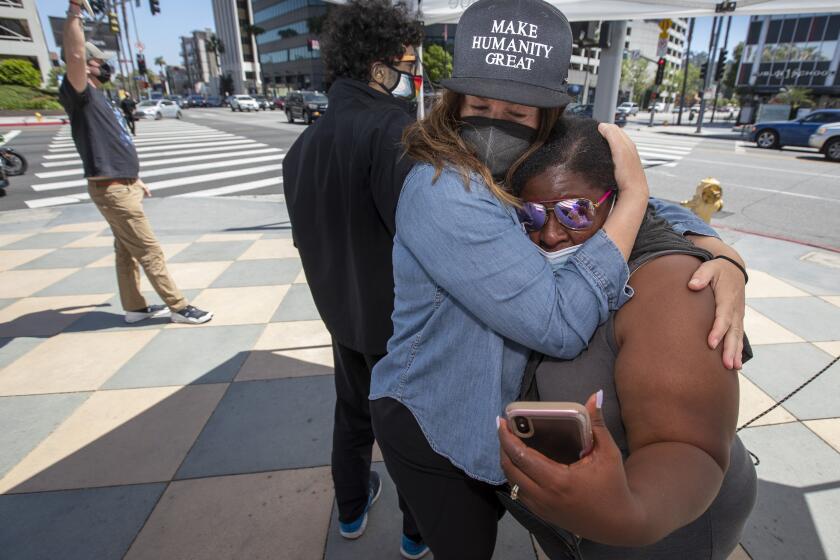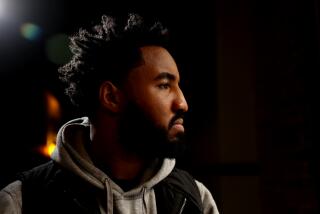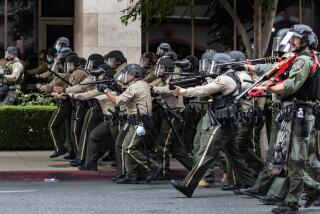At flashpoint of George Floyd protests, Fairfax Avenue reacts to verdict with relief
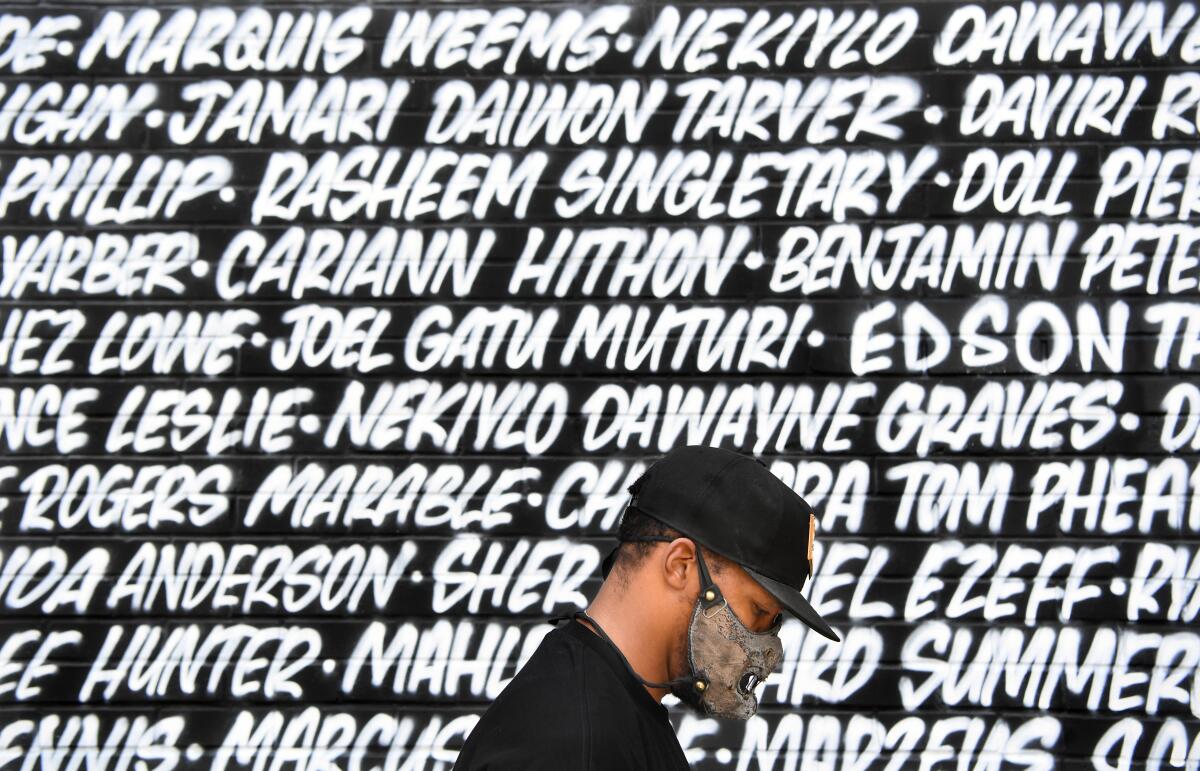
- Share via
Positioned on a stool in the dark wood-paneled interior of the barbecue kiosk where he works, David Chan watched TV news on his iPhone as he waited for his next customer.
The sound of a cable news talking head sounding off on the “systemic problem with police violence” was just audible over the busy lunch chatter inside the Original Farmer’s Market, where Chan manned a cash register clad in a white T-shirt and bright blue Dodgers hat.
From his perch behind the counter at Bryan’s Pit Barbecue, the 48-year-old cashier and manager had a direct view out onto 3rd Street.
It was here nearly a year ago where the rage over the police killing of George Floyd boiled over in Los Angeles. Thousands of protesters took to the streets of the Fairfax District. While the demonstration was largely peaceful, some people broke into stores, vandalized and stole items along both Fairfax and Melrose Avenue.
The Los Angeles Police Department’s aggressive tactics during the protests have since come under scrutiny, and police have vowed reforms
Chief Michel Moore’s promises that the LAPD is prepared to facilitate demonstrations related to Derek Chauvin’s trial come at a high-stakes moment for the department.
Chan had been working that fateful Saturday last May, when he’d watched as the tension — and crowds — in the corner of his vision grew and grew.
“They kind of busted up this place back around Memorial Day,” Chan said, noting that the restaurant had closed for three days after the protests in the Fairfax District.
He had feared something similar happening today and had scrambled to find news of the verdict after a friend texted him “It’s on right now” as he was starting his shift.
He said he hadn’t favored any particular outcome in the trial, but was relieved that similar chaos was unlikely to follow a guilty verdict.
Across the country, people began to reflect on what it meant for a white officer to be convicted in the killing of a Black man.
“The last thing anyone needs is another riot,” Chan said with a dark laugh, twiddling the plastic spoon taped to a pen kept on the counter for signing receipts.
Under a bright green awning a few kiosks over, relief came to Coffee Corner cashier Cynthia Mejia in the form of a phone call. Just after 2:10 p.m. her boss called the land line inside the kiosk to inform Mejia that the jury in the Chauvin trial had come back with a guilty verdict.
Mejia and her coworkers could finish out the workday — they wouldn’t need to close up early, as they had planned to do in case of an acquittal.
Sporadic celebrations erupted after the former police officer was convicted in the death of George Floyd.
Mejia, a 33-year-old Van Nuys native who has the words “fear” and “God” tattooed on either side of her neck in black script, had spent long days during the summer out protesting after Floyd’s murder.
She was too young to remember Los Angeles in 1992. But she’d recently watched a documentary on Netflix about Rodney King and had been surprised by the facts of the case and all that transpired after.
She had feared something similar happening again, and thought the verdict showed the impact of the global protests.
“I feel like the movement that has started happening here, people have started fighting back and speaking up,” she said.
More to Read
Sign up for Essential California
The most important California stories and recommendations in your inbox every morning.
You may occasionally receive promotional content from the Los Angeles Times.
